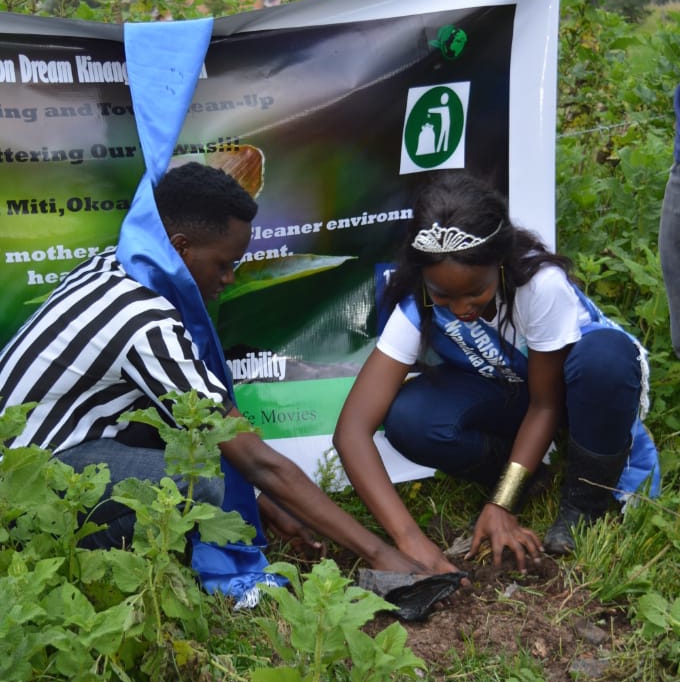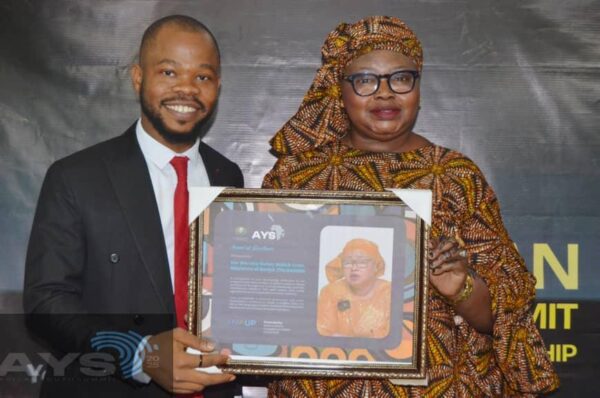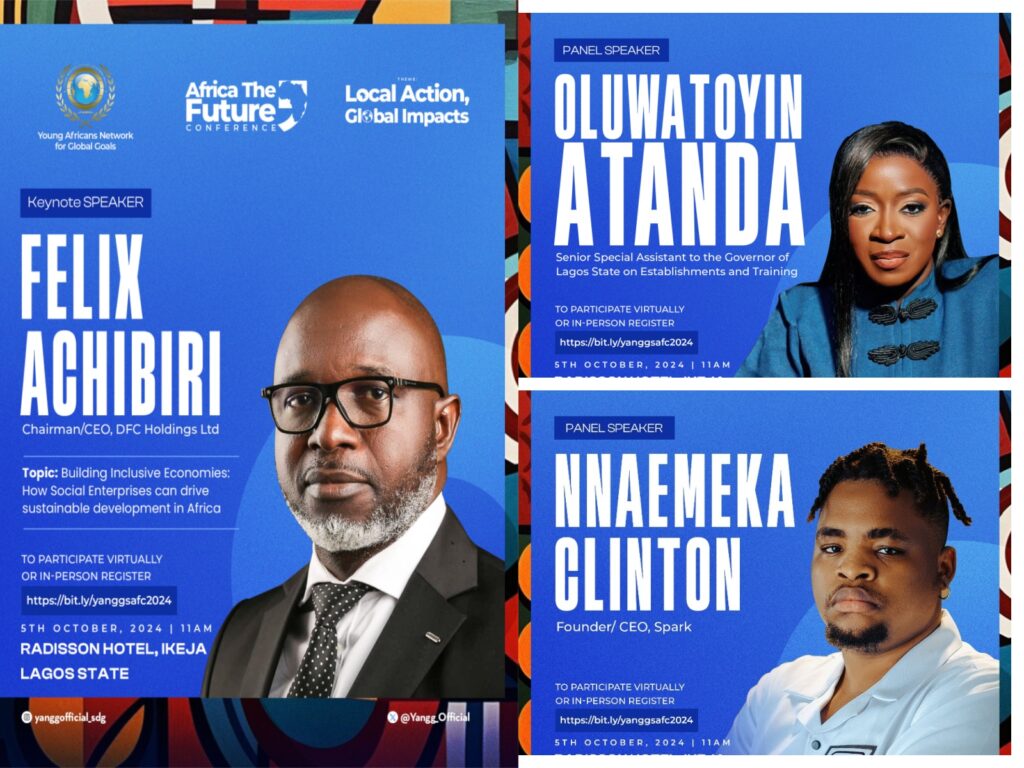Climate change, leadership… how YANGG is engaging youths to build a new Africa

By Genevieve Aningo
Africa, by its configuration, should be one of the world’s leading continents. But for decades, it has remained largely underdeveloped due to myriad of challenges.
The narrative, however, is gradually changing. A few individuals and organisations are taking the bull by the horn to revamp Africa by engaging the youths to build a progressive continent.
One of those fighting to actualise the United Nations Sustainable Development Goals (SDGs) in Africa and transform the continent is the Young Africans Network for Global Goals (YANGG).
YANGG was birthed to “raise global youth leaders who are rooted in sustainability for African transformation” and “engage enterprising young leaders as pioneers in advocating for development within the African region.”
The organisation currently has its presence in several African nations including Ghana, Nigeria, Senegal, Togo, Morocco, Sierra Leone, Uganda, Burundi, Namibia, Lesotho, Benin Republic, Democratic Republic of Congo, Cameroon, Gambia, Zambia, and Botswana.
In this interview with CRISPNG, Kelechi Ndieze, YANGG’s Executive Vice President (EVP) for West Africa, and Collins Ugochukwu Ibeawuchi, YANGG’s Global President, reflect on the organisation’s push to build a new Africa driven by the youths.
CRISPNG: Ibeawuchi, tell us more about yourself
My name is Collins Ugochukwu Ibeawuchi. I am a pan-Africanist and a Sustainable Development Goals (SDG) activist for African society. I am enthusiastic for gender equality in the continent. In YANGG, our major point of duty is actualising our dream of engaging African young leaders to become pioneers in advocating for development within the African region.
This movement started about 4 years ago and we are looking at having an arena where young people can co-exist and understand the government, their place in education, and take responsibility.
What do you think are the factors discouraging African youths from participating in issues that affect them?
One important thing we need to build is getting young people under an umbrella to network, socialise and understand that we have a common enemy. What is that common enemy? Any institution or policy or any policy that doesn’t fall in line with building young people is a common enemy.
This is what we are trying to build around the young people. In Cameroon, the young people find it difficult to integrate with what is happening around them such that some governmental polices has become so strict to the point that they feel like running away
The dream of Africa is not a situation where everybody would migrate to other continents in search of greener pastures. The African dream is where all young people sit back, work towards the advancement of our society and make sure it equals other European, American, and Asian countries.
Such cannot happen with the isolation of the youths. So, we are expanding this stakeholder mentality to all young people through our projects, programmes, and conferences. Next year we would be having on-site projects because all through the months we had been engaging hugely in sensitising young women and their participation in governance.
It is in this part of the continent that we see young men at the age of 35 to 40 years still living under the roofs of their parents. That sense of responsibility is not enshrined in them so we need to give that understanding and it has to happen. We are going to do that by ensuring that we build the young people to understand their place in governance.
The modern United Nations Conference and a couple of upcoming onsite would focus on leadership and entrepreneurship. We hope to have a massive number of youths that will key into that The basic reason why we are doing this is to build back our society.
Colonization came and it hasn’t left us. We are witnessing neo-colonisation in this 21st century. We are looking at building Africans by Africans using our African methods and patterns. This is why YANNG exists; to build back and the youths are the major stakeholders towards this building.
The dream of Africa is not a situation where everybody would migrate to other continents in search of greener pastures.
What projects do you have in the coming years to actualise your vision?
By next year, we would clock five years as an organisation and we would be having the modern United Nations Conference in the Democratic Republic of Congo (DRC) to bring synergy among the young people.
They are rich in mineral resources and have a population of young people. However, the depth at which corruption has taken over their society is deep. So, we are looking at bringing a picture of revolution by hosting this modern United Nations conference over there.
The conference would bring young people to talk about governmental affairs and policies that affect their society. Policies regarding their governments towards their nation and then they would thrive under an umbrella; the Sustainable Development Goals.
Also, the Democratic Republic of Congo was chosen as a way to help in our little way to bring about stakeholdership, collective responsibility, and build more awareness when it comes to young people and their society.
The event would create avenues for DRC stakeholders to discuss ways we can include young people in policy implementation on issues concerning government. When it is about passing a bill that talks about buying cars for government officials, the government is united but when it is about issues concerning the youths, they divide. If you note clearly the governmental structure of DRC, you would note why it is so dear for us to talk about DRC.
Likewise, in the coming years, we would start a tree planting exercise in several countries. This is an extension this is going to walk out clearly because of the growing issue of climate change and how African society has been so ignorant of climate actions, climate issues, and things concerning their environment.
We are much more affected here in Africa but the discussion is not being taken seriously. From September this year down till next year, we would be carrying a huge tree planting exercise in the Gambia and several other places. The young people need to understand their places and of course, we need to help build our environment and ensure we have much more understanding when our environment is being discussed.
CRISNG: Does YANNG welcome other non-governmental institutions who share similar aspirations for the development of African youths and Africa?
We welcome strategic partnerships and we try to synergise with people to buy into our ideas and join forces with us because there are some extents which we can’t get to which partnership would help us get there.
CRISPNG: Kelechi, congratulations on your appointment as YANGG’s executive vice-president for West Africa. Tell us about your role and how you’re going to help actualise YANGG’s objectives.
As the executive vice-president for West Africa, my job is to ensure YANGG’s objectives are achieved in the region. My duty is to lead an army of critical thinkers to realise the Africa we want. It’s more of an administrative role and institution-oriented.
I’m to look out for individuals and partners that have the same interest to collaborate with to get the job done. At YANGG, we understand that partnership is key to executing our vision. Therefore, in my capacity, I will be interfacing with agencies and government institutions to make them understand what we are doing and get them to partner with us.
I am also expected to expand the network, especially at the grassroots and regional levels. Currently in West Africa, we are focusing on 10 countries and hope to expand to more. The yardstick to measure the success of our projects is mostly through the level of impact on those that are directly affected.
So, basically, I am in charge of anything that has to do with translating the vision of YANGG into reality in West Africa.
Apart from what the president said, tell us about YANGG’s activities and projects
We have a lot of projects ranging from climate change to business opportunities. We strive for a better economy and establish entrepreneurial skills among the youths. What we do is close the gaps between passive ventures and established businesses.
YANGG would also be giving the impact award next year; we are looking at recognising young Africans in different communities that contribute to development. The impact award is going to all sectors in Africa. We want to look at international policies that are affecting business in Africa.
YANGG is a conglomerate of young people that come together to solve Africa’s problems through pioneering sustainable development goals, entrepreneurship, and leadership development.
Our vision is to raise young individuals who are committed to the stability of Africa. Our goal is to build a network of global leaders who are passionate about transforming Africa. We are building synergy together and also building partnership of young professionals even those in the diaspora that are of African descent.
We believe that our strength lies in the youth and we are solving global issues using local approaches. We have key areas of focus, especially in West Africa. They include personal development, business opportunities, climate change, and environmental sustainability.
There are some African countries that are not conducive for NGOs and advocacy groups like yours. Has YANGG developed any mechanism to handle such situation?
You can see how revolution is happening because of how people use social media. We leverage the power of social media. We give our word through the media and it reduces cost for us. We had a programme in Gambia and I used social media to get that done.
We can have online conversations. With Telegram, you can gather as many as 20,000 persons and have meetings and with Google meets you can have many discussions. What we are doing is leveraging the media to give our voices to some of the issues in the society.








